Ecumenical Patriarch Athenagoras I of Constantinople inside the ruins of the destroyed Orthodox church of Saint Constantine, Istanbul.
Supporting the views of Democratic Party, Istanbul Express Newspaper was owned by Mithat Perin, editorial director of that time was Gökşin Sipahioğlu. “Our father Atatürk’s house has been bombed” made the headline of the newspaper’s second issue. On 6 September 1955 290,000 issues were printed, exceeding the usual newspaper circulation of 20,000 papers by far. Members of the Cyprus Turkish Association started to distribute the issue all over Istanbul to agitate the people.
Due to reports from eyewitnesses, the riot started from a place in Pangaltı, nowadays the location of Ramada Hotel owned by a Greek citizen. In 1955 this was the place of popular localities such as the ‘Haylayf’ pastry shop. The riot started with attacking Haylayf pastry shop at 7.00 pm. From here the attacks spread all over Istanbul and all over the country.
Years later journalist Fatih Güllapoğlu interviewed retired general Sabri Yirmibeşoğlu about the Istanbul Riots. Yirmibeşoğlu described the attacks by saying “It was an excellent special warfare operation and it reached its goal.” In those days the Greek authorities announced that the bombings in Thessaloniki were a provocation organized by the Turkish state. Oktay Engin, scholarship student at the Thessaloniki Faculty of Law and agent of the National Intelligence Agency (MİT), and Hasan Uçar, tipstaff of the consulate in Thessaloniki, were arrested in regards with this event. After some time in detention Engin and Uçar were released because of the immunity of consular officials. Later on, Engin was appointed to important tasks in MİT, progressed quickly through the different administrative levels of the state and was promoted to the Governorship of Nevşehir in 1992.
According to the press, 11 people died in the riots, according to Greek sources 15 people lost their lives. Officially 30 people were injured, unofficial numbers amount to 300. The number of raped women is estimated to be above 200.
4,214 houses, 1,004 offices, 73 churches, one synagogue, one monastery, 26 schools and 5,317 other places such as hotels and bars were attacked.
The property damage is estimated between 150 million and 1 billion Turk Lira as an equivalent to the value of those days. The Democratic Party government paid about 60 million Turkish Lira in compensation.
Newspapers of the time blamed the Greeks as the actual criminals because they had allegedly provoked the Turks.
When the riot got out of control Prime Minister Adnan Menderes was called from Sapanca and martial law was declared. In regards with the riots first 3151 people were arrested. Later on this number raised to 5104 people arrested.
Churches and cemeteries were attacked as well: holy pictures, crucifixes, icons and other sacred objects were destroyed. All 73 orthodox churches in Istanbul were set on fire.
Looters from İzmit and Adapazarı were caught with the goods they had plundered in Haydarpaşa train station on their way back. It turned out that many of the looters had been brought form other cities. According to documents from retired judge Fahri Çoker’s History Foundation, 145 looters were brought from Sivas, 117 from Trabzon, 116 from Kastamonu and 111 from Erzincan. (BIA, Tolga KORKUT, 8 September 2009)
Source;
http://www.milliyet.com.tr
https://vatopaidi.wordpress.com/2009/09/09/what-happened-on-6-7-september-1955/


Today there is only a small greek community in the capital of ex Byzantine Empire. This is because of the above pogrom and due to the later general policy of the Turkish governments against Greeks in Turkey .
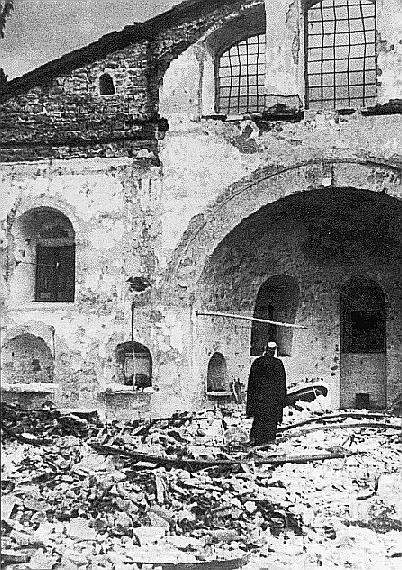
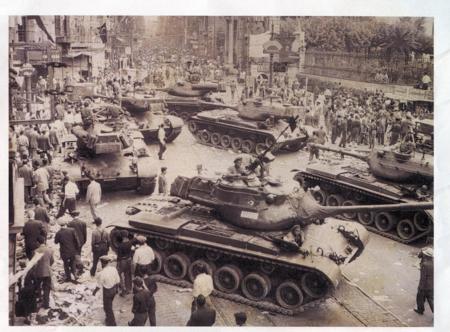
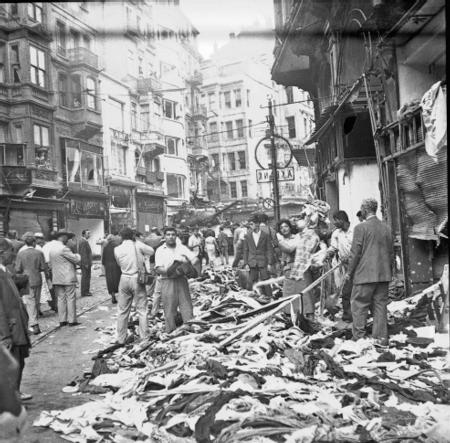
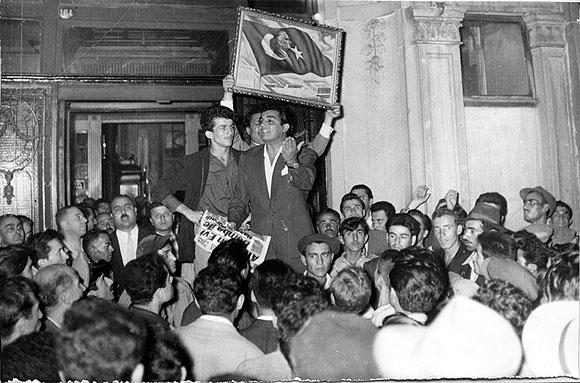
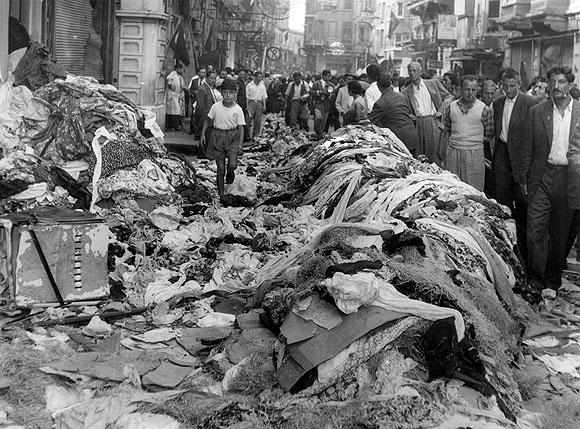
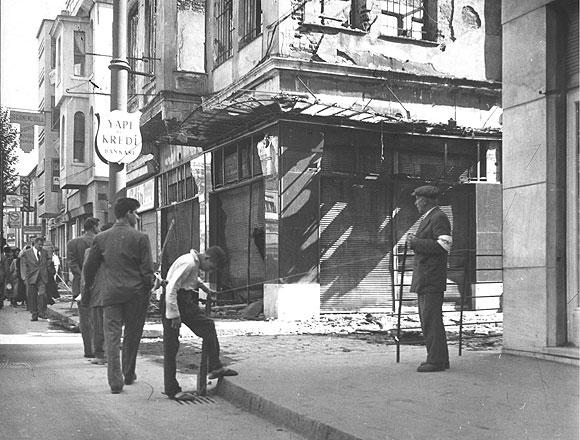
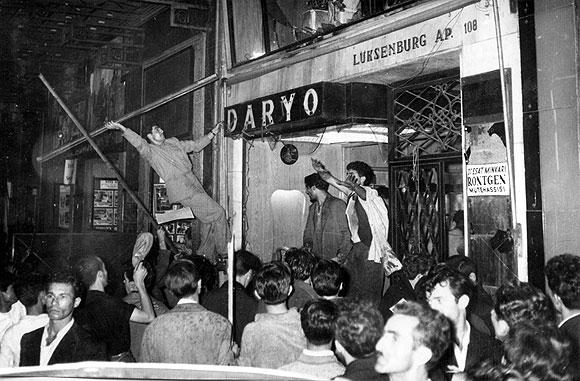
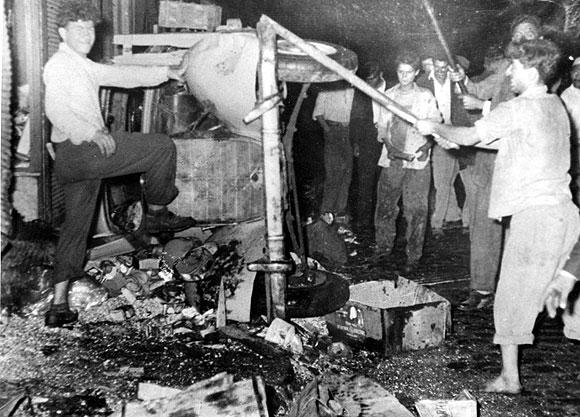
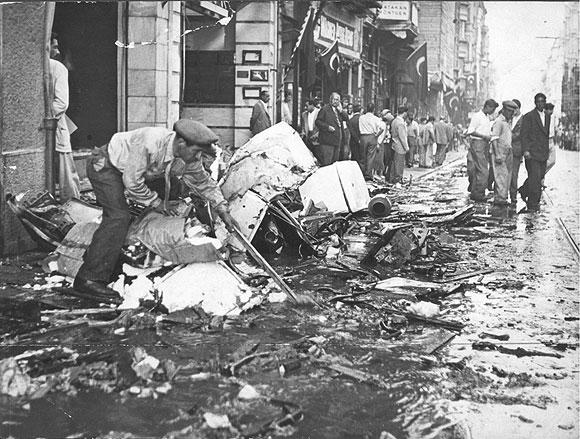
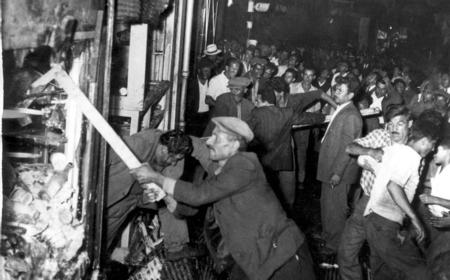
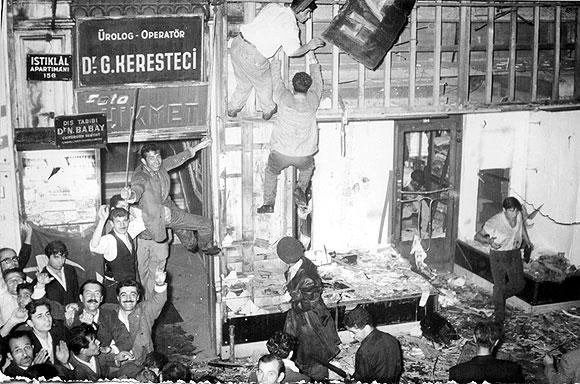
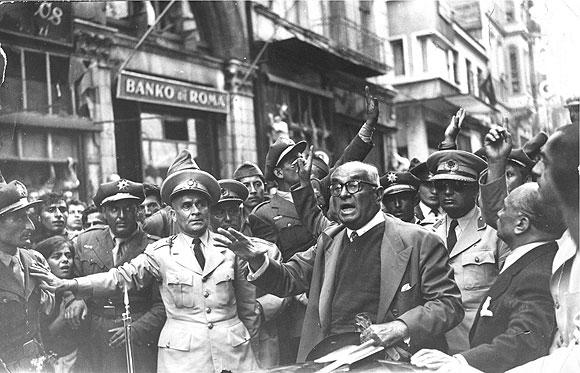
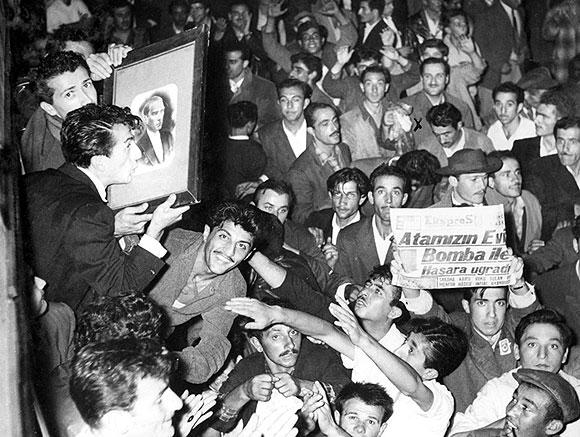
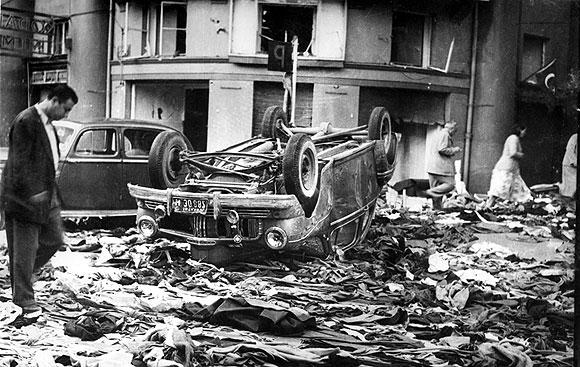
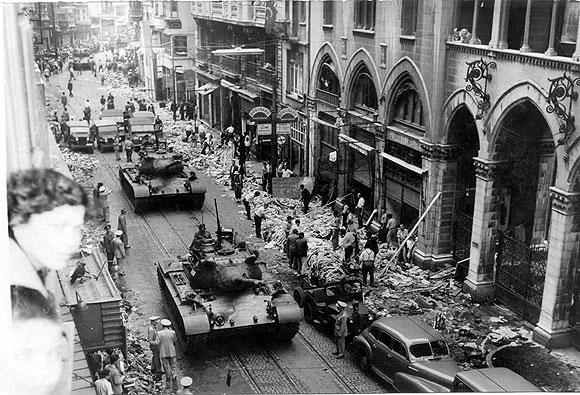
Δεν υπάρχουν σχόλια:
Δημοσίευση σχολίου